Filter by
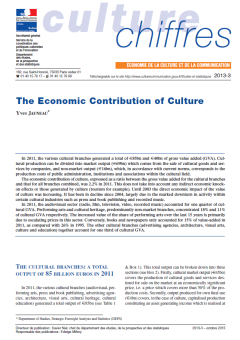
The Economic contribution of culture
In 2011, cultural industries had a total production of 85 billion euros with an added value of 40 billion euros. Cultural production is divided and shared between a merchantable amount of 69 billion euros from the sale of companies’ cultural goods and services, and a non-merchantable amount of 16 billion euros, which corresponds, by convention, to the production costs of departments, public i…
- Edition
- -
- ISBN/ISSN
- 9782111399235
- Collation
- -
- Series Title
- -
- Call Number
- 361.1 JAU e

The technological and economic future of nuclear power
This open access book discusses the eroding economics of nuclear power for electricity generation as well as technical, legal, and political acceptance issues. The use of nuclear power for electricity generation is still a heavily disputed issue. Aside from technical risks, safety issues, and the unsolved problem of nuclear waste disposal, the economic performance is currently a major barrier. …
- Edition
- -
- ISBN/ISSN
- 9783658259877
- Collation
- ix, 385p. : ill.
- Series Title
- -
- Call Number
- 333.7924 TEC t
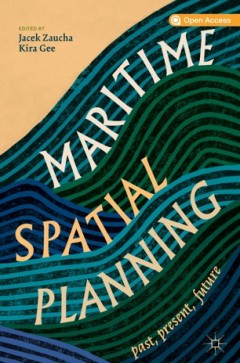
Maritime spatial planning : past, present, future
Maritime or marine spatial planning has gained increasing prominence as an integrated, common-sense approach to promoting sustainable maritime development. A growing number of countries are engaged in preparing and implementing maritime spatial plans: however, questions are emerging from the growing body of MSP experience. How can maritime spatial planning deal with a complex and dynamic enviro…
- Edition
- -
- ISBN/ISSN
- 9783319986968
- Collation
- xxxvii, 477p. : ill.
- Series Title
- -
- Call Number
- 333.9164 MAR m

At the crossroads : lessons and challenges in computational social science
The interest of physicists in economic and social questions is not new: for over four decades, we have witnessed the emergence of what is called nowadays “sociophysics” and “econophysics”, vigorous and challenging areas within the wider “Interdisciplinary Physics”. With tools borrowed from Statistical Physics and Complexity, this new area of study have already made important contrib…
- Edition
- -
- ISBN/ISSN
- 9782889450213
- Collation
- 98 p.
- Series Title
- -
- Call Number
- 371.12 BOR c

Science fiction literature in East Germany
East German science fiction enabled its authors to create a subversive space in another time and place. One of the country’s most popular genres, it outlined futures that often went beyond the party’s official version. Many utopian stories provided a corrective vision, intended to preserve and improve upon East German communism. This study is an introduction to East German science fiction. …
- Edition
- -
- ISBN/ISSN
- 9783039107391
- Collation
- 333 p.
- Series Title
- -
- Call Number
- 833.08762099431 FRI s
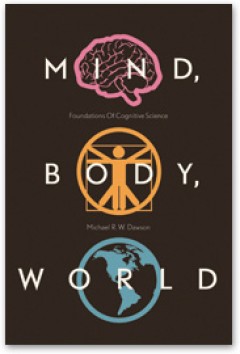
Mind, body, world : foundations of cognitive science
Cognitive science arose in the 1950s when it became apparent that a number of disciplines, including psychology, computer science, linguistics, and philosophy, were fragmenting. Perhaps owing to the fieldÕs immediate origins in cybernetics, as well as to the foundational assumption that cognition is information processing, cognitive science initially seemed more unified than psychology. Howeve…
- Edition
- -
- ISBN/ISSN
- 9781927356180
- Collation
- XV, 490 p.
- Series Title
- OPEL (Open Paths to Enriched Learning)
- Call Number
- 153 DAW m

Quality of life and quality of working life
In this book, we can read about the well-being, quality of life, and quality of working life. The authors come from different countries, and their ideas, studies, findings, and experiences offer beneficial contributions to enhance our knowledge in the field of well-being and quality of life, as well as quality of working life. The book is divided into two sections, and their respective chapters…
- Edition
- -
- ISBN/ISSN
- 9789535134459
- Collation
- 312 p.; 22 cm.
- Series Title
- -
- Call Number
- 306 QUA q
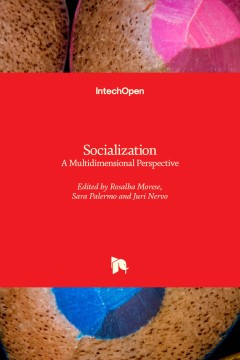
Socialization : a multidimensional perspective
This is the first book that highlights how socialization is experienced as being a complex concept in everyday life in various countries of the world. The book represents the first attempt to provide an original and multidimensional definition of socialization that takes into account the contribution of different disciplines, such as philosophy, psychology, sociology, education, and even archit…
- Edition
- -
- ISBN/ISSN
- 9781789233087
- Collation
- 202 p.; 22 cm.
- Series Title
- -
- Call Number
- 301 SOC s
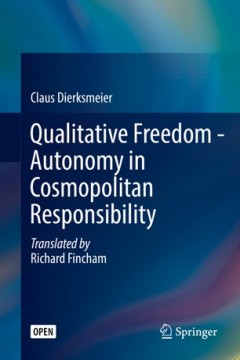
Qualitative freedom : autonomy in cosmopolitan responsibility
In the light of growing political and religious fundamentalism, this open access book defends the idea of freedom as paramount for the attempt to find common ethical ground in the age of globality. The book sets out to examine as yet unexhausted ways to boost the resilience of the principle of liberalism. Critically reviewing the last 200 years of the philosophy of freedom, it revises the princ…
- Edition
- -
- ISBN/ISSN
- 9783030047238
- Collation
- x, 365p. : ill.
- Series Title
- -
- Call Number
- 123.5 DIE Q
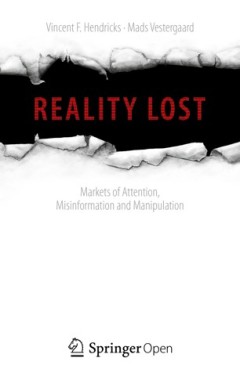
Reality lost : markets of attention, misinformation and manipulation
This open access book looks at how a democracy can devolve into a post-factual state. The media is being flooded by populist narratives, fake news, conspiracy theories and make-believe. Misinformation is turning into a challenge for all of us, whether politicians, journalists, or citizens. In the age of information, attention is a prime asset and may be converted into money, power, and influ…
- Edition
- -
- ISBN/ISSN
- 9783030008130
- Collation
- xxi, 144p. : ill.
- Series Title
- -
- Call Number
- 070.43 HEN r
 Computer Science, Information & General Works
Computer Science, Information & General Works  Philosophy & Psychology
Philosophy & Psychology  Religion
Religion  Social Sciences
Social Sciences  Language
Language  Pure Science
Pure Science  Applied Sciences
Applied Sciences  Art & Recreation
Art & Recreation  Literature
Literature  History & Geography
History & Geography